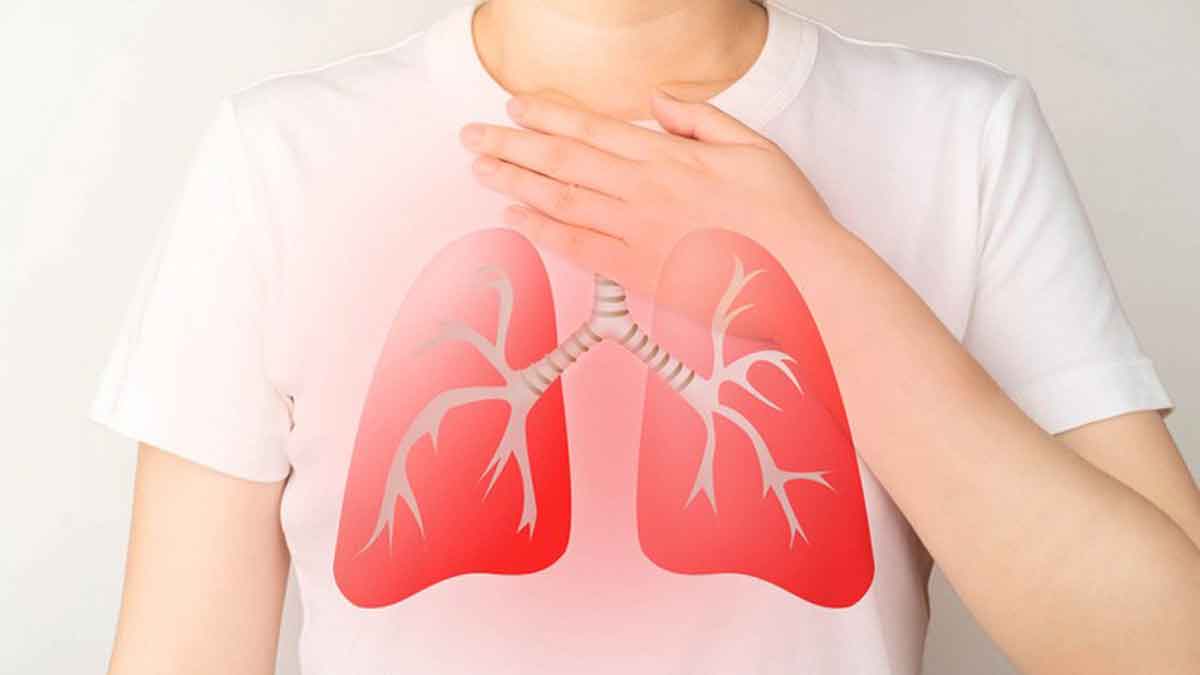From CT scans to blood tests: The future of lung cancer screening with AI
 Representative Image
Representative Image
Lung cancer is the deadliest of all other cancers. It is a leading cause of cancer death in the world, contributing to 18·7% of all cancer-related deaths. In 2020 alone, it caused 17 lakh deaths globally.
Common in low- and middle-income countries like India, lung cancer is relatively difficult to detect. Its specific symptoms will not be evident until it reaches advanced stages. The most common symptoms are persistent cough, chest pain, shortness of breath, fatigue, weight loss, chronic lung infections and coughing up blood. Often, people overlook many of these symptoms, assuming they are common respiratory problems, which can prevent early diagnosis.
Multiple causes
Cigarette smoking increases the risk of lung cancer. Excess consumption of other forms of tobacco can also contribute to this disease. But a notable share of lung cancer patients are non-smokers. There is an alarming growth in their numbers, particularly among Asian non-smoking women, as they are more exposed to passive smoking, biomass fuels, environmental pollution, industrial emissions, and climate change effects. It also reveals the complexity of lung cancer as a disease and the urgency to have multi-pronged strategies to fight the disease.
Early detection
Early detection of lung cancer is very important as it can significantly reduce cancer-specific mortality. However, the lack of affordable and reliable diagnostic methods is a serious challenge. The current methods are largely dependent on radiological imaging and invasive procedures, which have certain limitations in terms of precision, accuracy and cost.
How can AI help in diagnosing cancer?
Low-dose CT scan
Low-dose CT (LDCT) is currently the most effective screening tool for early lung cancer detection, having demonstrated a relative reduction in lung cancer mortality by about 20% when compared to traditional chest X-ray screening.
With advancements in artificial intelligence (AI), further dose reduction has been achieved, enabling the use of ultra-low-dose CT (ULDCT). Despite the significantly lower radiation, nodule detection rates remain high, thanks to AI-assisted image reconstruction and detection algorithms. These AI tools serve as supportive aids to radiologists, improving sensitivity while maintaining safety for patients.
While newer AI models that estimate the malignancy probability of detected nodules are promising, they are yet to validated for routine screening use.
AI-assisted chest X-Rays
AI-powered chest X-rays present a cost-effective and scalable solution for expanding lung health screening, particularly in areas with limited access to advanced imaging tools like CT scans. These systems use intelligent algorithms to quickly analyse X-ray images, highlighting possible signs of lung disease that may otherwise go unnoticed. While chest X-rays may not detect very small nodules as precisely as CT scans, integrating AI significantly improves their usefulness as a preliminary screening tool. This technology can help healthcare providers identify at-risk individuals earlier and direct them to more detailed testing when needed, ultimately supporting broader and more inclusive screening efforts.
Dried blood tests
AI in metabolite analysis is a promising and emerging field, with early research showing encouraging accuracy in cancer detection across various types. These blood-based tests analyse metabolites, small molecules generated during the body’s metabolic processes, which can act as biomarkers reflecting abnormal cellular activity.
When paired with machine learning, this approach enables the analysis of vast metabolic datasets to uncover patterns that may indicate the presence of cancer. However, while initial studies suggest high accuracy rates in general cancer detection, its specific application to lung cancer screening is still emerging.
Combining mass spectrometry, a technique to analyse metabolites in dried blood spots, with ML algorithms helps researchers accurately identify metabolic changes associated with different types of cancers. Dried blood tests have several advantages. Metabolites remain stable in dried blood spots. It is less invasive, requiring only a small amount of blood. Dried blood samples are more stable, easier to transport and can be stored at room temperature.
Brighter future
These discoveries underscore the importance of AI in revolutionising cancer diagnosis. The convergence of AI, machine learning, and advanced biomarker analysis makes the future of humankind brighter and hopeful, as it has the potential to save millions of lives by identifying cancer at early stages, where the treatment is more effective.
Dr Bilal Thangal T M is the Medical Lead of NURA - Ai Health Screening Centre, India
The opinions expressed in this article are those of the author and do not purport to reflect the opinions or views of THE WEEK.
Health